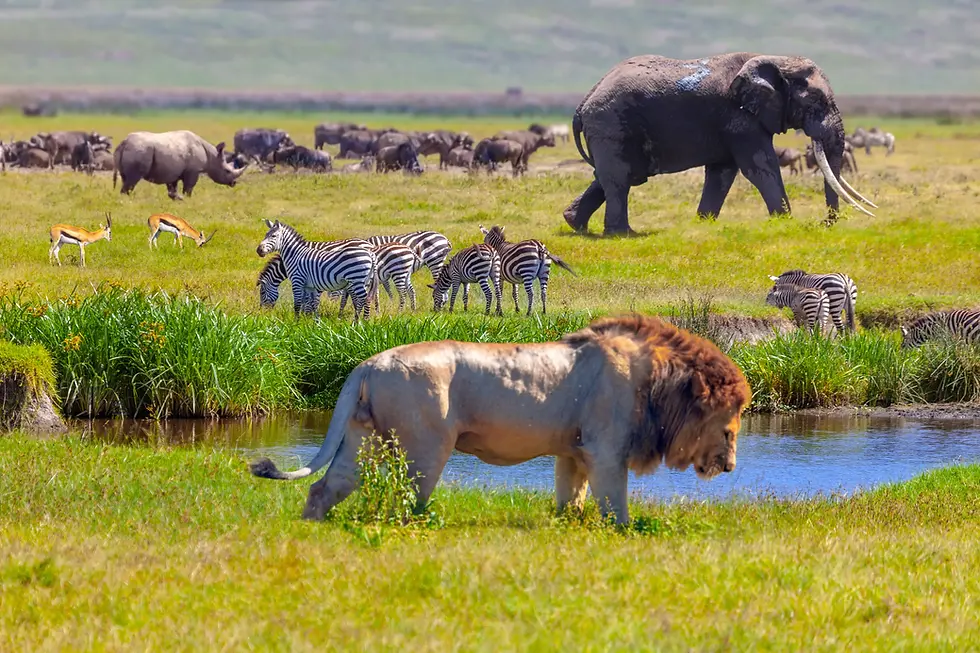Bee Stingers and Butterfly Kisses
- Pooja Srikanth
- May 26, 2025
- 3 min read
Do you remember the last time you got stung by a bee? That undeniable pain and red-hot swelling. Ice is the only thing that reduces the swelling. Or do you remember the last time a butterfly landed on you? The way it kisses your shoulder and its colorful wings spread, gloriously. Some of you may answer yes to my questions, but most of you will answer no.
This is an undeniable issue in today’s world. Some things that people may not realize. And it’s not about fewer bees, hornets, and wasps stinging people because that, for one, is amazing. But it’s about fewer butterflies, moths, hummingbirds, and bees providing the world with their job as pollinators.
Being a pollinator is one of the most important jobs, if not the most important. Pollinators not only pollinate flowers, which helps facilitate plant reproduction. This reproduction is essential because, without it, we wouldn’t have most of the fruits and seeds we have today.
So next time a bee stings you, maybe you should give it a hug or maybe a kiss. Because without them, we wouldn’t be able to taste the delicious strawberries, blueberries, bananas, and other fruits. Except, tomatoes. That’s one fruit I don’t mind living without.
But this brings me back to the first point I made. Why are there fewer stinging bees and fewer kissing butterflies? Well, the answer to that is—you. Or better yet—us. We are the problem and the reason we have fewer bees and fruits.
Some sources of this problem include overuse of pesticides, diseases, and even habitat loss. Using pesticides may seem like a great idea: “Wow, these pesticides do the trick and get rid of all these pests,” but no. Whatever farmer filled that into your brain is wrong. Because pesticides are helpful and useful, they cause a decent amount of harm as well. Pesticides can end up killing lots of good insects and harm the soil (which is a later problem). But overuse of pesticides is a big issue. Not only that, but diseases can also form from pesticides and fertilizers. This also kills bee populations. And finally habitat loss. Habitat loss occurs from agriculture, urbanization, and even logging. All of these issues can cause a poor bee to lose its home. And ultimately end up killing them.
And if you’re still not hooked on this issue, then let me take it even further. Just think of coffee. That’s right, coffee. Now, I’m not the biggest fan of coffee, but I know some people out there will do anything for coffee. So If you’re really willing to do anything, then just realize that without bees, we wouldn’t have coffee beans or coffee plants. Bees are the reason (amongst other pollinators) for this. And all this loss in not just coffee can result in major food security and more malnutrition.
But that doesn’t mean that society is ruined forever. It leaves us with hope. Because by promoting pollinator-friendly farming (yes, that means less pesticides and harmful fertilizers) and implementing more urban gardens, we can save the bees and our food security. And that unfortunately means more tomatoes, but it’s ok! Just think of the luxury of strawberries, bananas, blueberries, and coffee!
So next time you scream at a bee for stinging you, just think: you wouldn't have any of the delicious fruits and vegetables you have if not for them. And remember, you are the reason, but you are also the change.
Sources:
Bee Habitat Loss - Friends of the Earth, foe.org/blog/bee-habitat-loss/. Accessed 16 May 2025.
“About Pollinators.” Pollinator.Org, www.pollinator.org/pollinators. Accessed 16 May 2025.




Comments